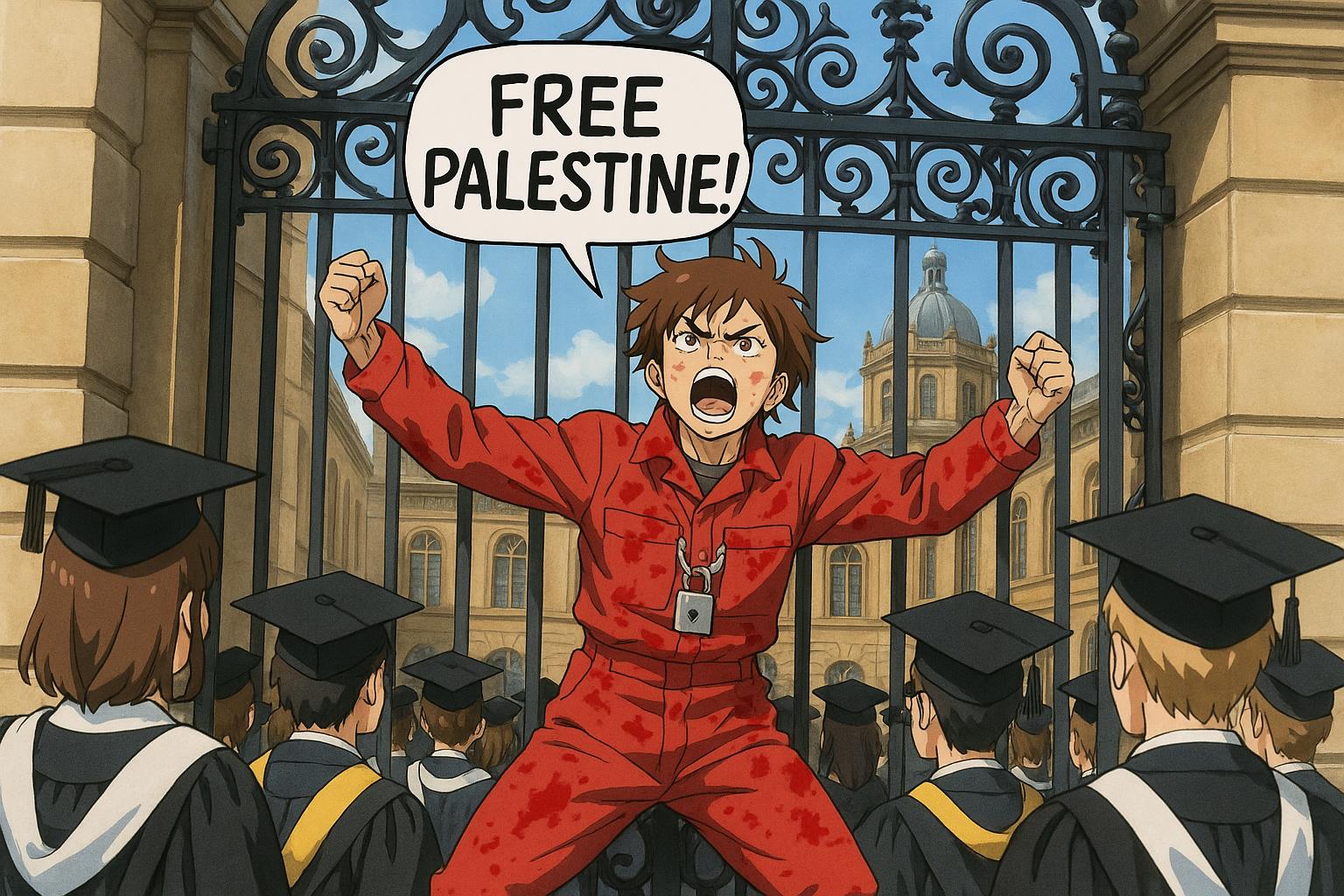On 23 May, a pro-Palestine demonstrator caused significant disruption at the University of Cambridge by chaining himself to the gates of the Senate House, which was hosting graduation ceremonies. Dressed in a boiler suit marked with red paint, the protestor secured himself using a padlock and zip-tie, shouting “Free Palestine” as his voice rang out across the crowd. This action was part of a larger movement advocating for the rights of Palestinians and coincided with ongoing tensions regarding the university's stance on the Israel-Palestine conflict.
Around a dozen supporters joined him outside the ceremonies for prominent colleges including Queen's, St Catherine's, and Jesus Colleges, holding Palestine flags and wearing face masks. This incident highlights the growing activism among students and the broader community regarding political issues, especially those linked to international human rights.
The university recently faced legal challenges regarding its approach to such demonstrations. In March, a High Court injunction was granted, effectively banning pro-Palestine protests on key areas of the campus until the end of July. Critics of this ruling described it as a “chilling attack on free speech,” arguing that such measures undermine the right to protest and express dissent in academic environments. Advocates for the injunction, however, claimed it was necessary for maintaining order during graduation ceremonies, a point that has sparked considerable debate among students and observers alike.
In a related development, King's College—part of Cambridge University—announced in May that it would cease investing in arms companies, a decision prompted by public pressure and calls for ethical accountability from student groups. The student-led organisation 'Cambridge for Palestine' has been active in urging the university to divest from companies viewed as contributing to the ethnic cleansing of Palestinians. Their protests have formed part of a larger pattern across various universities in the UK, where students have demanded an end to institutional affiliations with entities believed to be complicit in violations against Palestinians.
The landscape of student activism around Palestine is expanding, with demonstrations and occupations reported at more than one hundred universities globally. This particular movement intertwines local actions with international advocacy, aiming not only to shine a light on the current humanitarian crisis in Gaza but also to challenge the investments and financial ties of educational institutions to the situation.
As the University of Cambridge strives to balance the rights to protest with concerns about maintaining a respectful academic environment, the events of May 23 serve as a reminder of the complexities and heightened emotions surrounding the Israel-Palestine issue. With continuing pressure from student activists and community groups, the university's policies may further evolve as they navigate the demands for both free expression and academic integrity.
##Reference Map:
Source: Noah Wire Services
